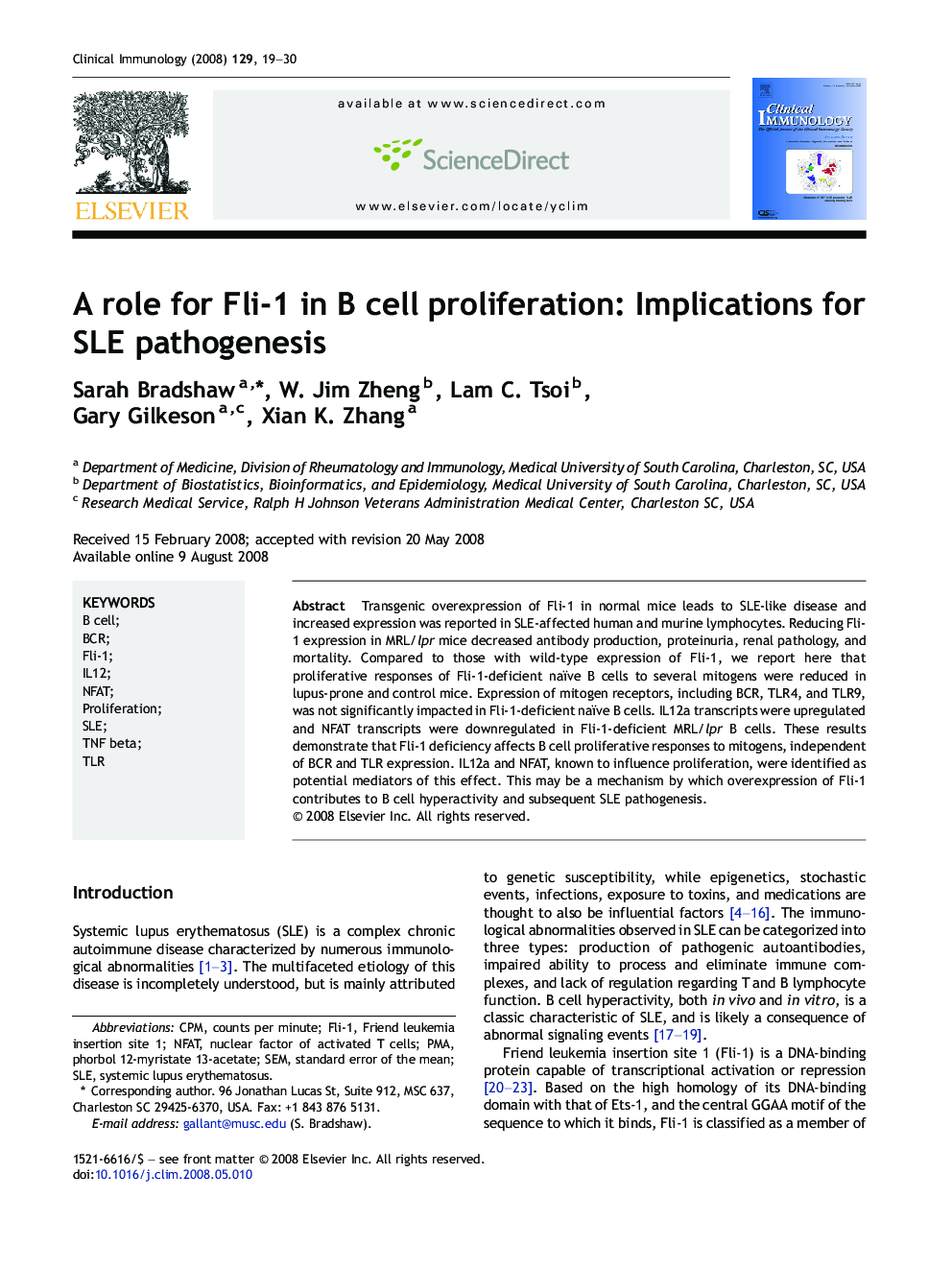| Article ID | Journal | Published Year | Pages | File Type |
|---|---|---|---|---|
| 3258291 | Clinical Immunology | 2008 | 12 Pages |
Abstract
Transgenic overexpression of Fli-1 in normal mice leads to SLE-like disease and increased expression was reported in SLE-affected human and murine lymphocytes. Reducing Fli-1 expression in MRL/lpr mice decreased antibody production, proteinuria, renal pathology, and mortality. Compared to those with wild-type expression of Fli-1, we report here that proliferative responses of Fli-1-deficient naïve B cells to several mitogens were reduced in lupus-prone and control mice. Expression of mitogen receptors, including BCR, TLR4, and TLR9, was not significantly impacted in Fli-1-deficient naïve B cells. IL12a transcripts were upregulated and NFAT transcripts were downregulated in Fli-1-deficient MRL/lpr B cells. These results demonstrate that Fli-1 deficiency affects B cell proliferative responses to mitogens, independent of BCR and TLR expression. IL12a and NFAT, known to influence proliferation, were identified as potential mediators of this effect. This may be a mechanism by which overexpression of Fli-1 contributes to B cell hyperactivity and subsequent SLE pathogenesis.
Keywords
Related Topics
Life Sciences
Immunology and Microbiology
Immunology
Authors
Sarah Bradshaw, W. Jim Zheng, Lam C. Tsoi, Gary Gilkeson, Xian K. Zhang,
